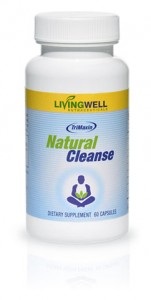 Did you see Morgan Spurlock’s “Supersize Me” documentary? The film, which came out in 2004, chronicled the filmmaker’s life as he subsisted on nothing but McDonald’s for 30 days.
Did you see Morgan Spurlock’s “Supersize Me” documentary? The film, which came out in 2004, chronicled the filmmaker’s life as he subsisted on nothing but McDonald’s for 30 days.
Along with gaining more than 24 pounds, Spurlock had fat accumulation in his liver along with mood swings and sexual dysfunction after the month-long period. It served as a poignant reminder of how quickly fast-food can ruin your body … but more recent experiments show negative changes happen even faster than 30 days.
Take Tim Spector, a professor of genetic epidemiology at King’s College London. In order to see what happens to your gut on a fast-food diet, he had his son, Tom, eat McDonald’s for 10 days straight. After just 10 days, Tom felt lethargic and experienced withdrawal symptoms when he changed back to his normal diet.
Worse still, he lost about 1,400 different types (or about 40 percent) of bacterial species in his gut, and loss of microbial diversity is increasingly being recognized as a contributor to chronic disease.[i]
Eating Differently for Two Weeks May Alter Your Colon Cancer Risk
Another study swapped the diet of African Americans with that of South Africans. The African Americans, accustomed to eating a low-fiber, western-style diet, ate a diet high in fiber (including plenty of beans and vegetables). The South Africans gave up their healthy diet for a typical western-style diet.[ii]
After just two weeks, the food changes resulted in “remarkable reciprocal changes” in biomarkers of colon cancer risk. The American group had significantly less inflammation in the colon and reduced biomarkers of cancer risk. The South African group, on the other hand, had significant increases in cancer biomarkers.
Lead author Professor Stephen O’Keefe at the University of Pittsburgh, told Science Daily:[iii]
“Studies on Japanese migrants to Hawaii have shown that it takes one generation of westernization to change their low incidence of colon cancer to the high rates observed in native Hawaiians. Our study suggests that westernization of the diet induces changes in biomarkers of colon cancer risk in the colonic mucosa within two weeks.
Perhaps even more importantly, a change in diet from a westernized composition to a ‘traditional African’ high fiber low fat diet reduced these biomarkers of cancer risk within two weeks, indicating that it is likely never too late to change your diet to change your risk of colon cancer.”
What are the Risk Factors for Colon Cancer?
Colorectal cancer (cancer of the colon or rectum) is the third most common cancer in the United States, excluding skin cancers. It’s estimated there will be more than 93,000 new cases of colon cancer (and 39,600 cases of rectal cancer) in 2015.[iv]
Although your age and family history play some role in your colon cancer risk, there are many lifestyle factors that appear to play a role as well. This includes:[v]
- A diet high in red meats and processed meats
- Cooking meats at very high temperatures, which creates cancer-causing chemicals
- Physical inactivity
- Obesity
- Smoking
- Heavy alcohol use (more than two drinks a day for men and one drink a day for women)
So What Can Lower Your Risk of Colon Cancer?
A vegetable-rich, high-fiber diet is linked to a lower risk. As reported by the American Cancer Society:[vi]
“Diets high in vegetables, fruits, and whole grains have been linked with a decreased risk of colorectal cancer.”
Eating right is therefore one of the best ways to protect against this disease. As the featured study showed, it might take as few as two weeks for beneficial changes to become apparent, in large part because eating healthy has a favorable influence on your microbiome. As Science Daily reported:[vii]
“The study found that a major reason for the changes in cancer risk was the way in which the bacteria in the gut — known as the microbiome — altered their metabolism to adapt to the new diet. In the American group, the researchers found that the African diet led to an increase in the production of butyrate, a byproduct of fibre metabolism that has important anti-cancer effects.
Dr James Kinross, a colorectal surgeon and a member of the research group at Imperial, said: “The gut microbiome is being increasingly recognized as an important contributor to human health. This research shows that gut bacteria are critically important for mediating the link between diet and colon cancer risk. This means we can look to develop therapies targeting gut bacteria as a way to prevent and treat cancer.””
 If you want to give your colon some extra support, try than Natural Cleanse. This 30-day colon flush and revitalization program contains a proprietary probiotic blend to nourish your gut bacteria along with buckthorn bark and rhubarb root, both of which contain beneficial anthraquinones.
If you want to give your colon some extra support, try than Natural Cleanse. This 30-day colon flush and revitalization program contains a proprietary probiotic blend to nourish your gut bacteria along with buckthorn bark and rhubarb root, both of which contain beneficial anthraquinones.
Plus, they’re combined with several other gentle yet effective compounds for colon health, including licorice root, cloves, ginger, fiber-rich psyllium husk and more.
[ii] Nature Communications April 28, 2015
[iii] Science Daily April 15, 2015
[iv] American Cancer Society, What are the key statistics about colorectal cancer?
[v] American Cancer Society, Colorectal Cancer Risk Factors
[vi] American Cancer Society, Colorectal Cancer Risk Factors


I have spinal stenosis and have been taking a homeopathic remedy for almost two years and started using Rub on Relief for about 8 months. I have been told that the Menthol in the “Rub On” will negate the effect of the remidies. What is your opinion and what was the rational to using the menthol with the homeopathic ingredients in the Rub on Relief? I love the product and do not want to stop but will perhaps need to make a choice. Thanks for your help in this matter. Kit Langdon
Kit,
1. There may be some volatility to that if our other homeopathic were at higher titrations but at the lower titrations its not an issue.
2. You will note that we have even titrated our Menthol (2X), giving it even more energy…
Steve